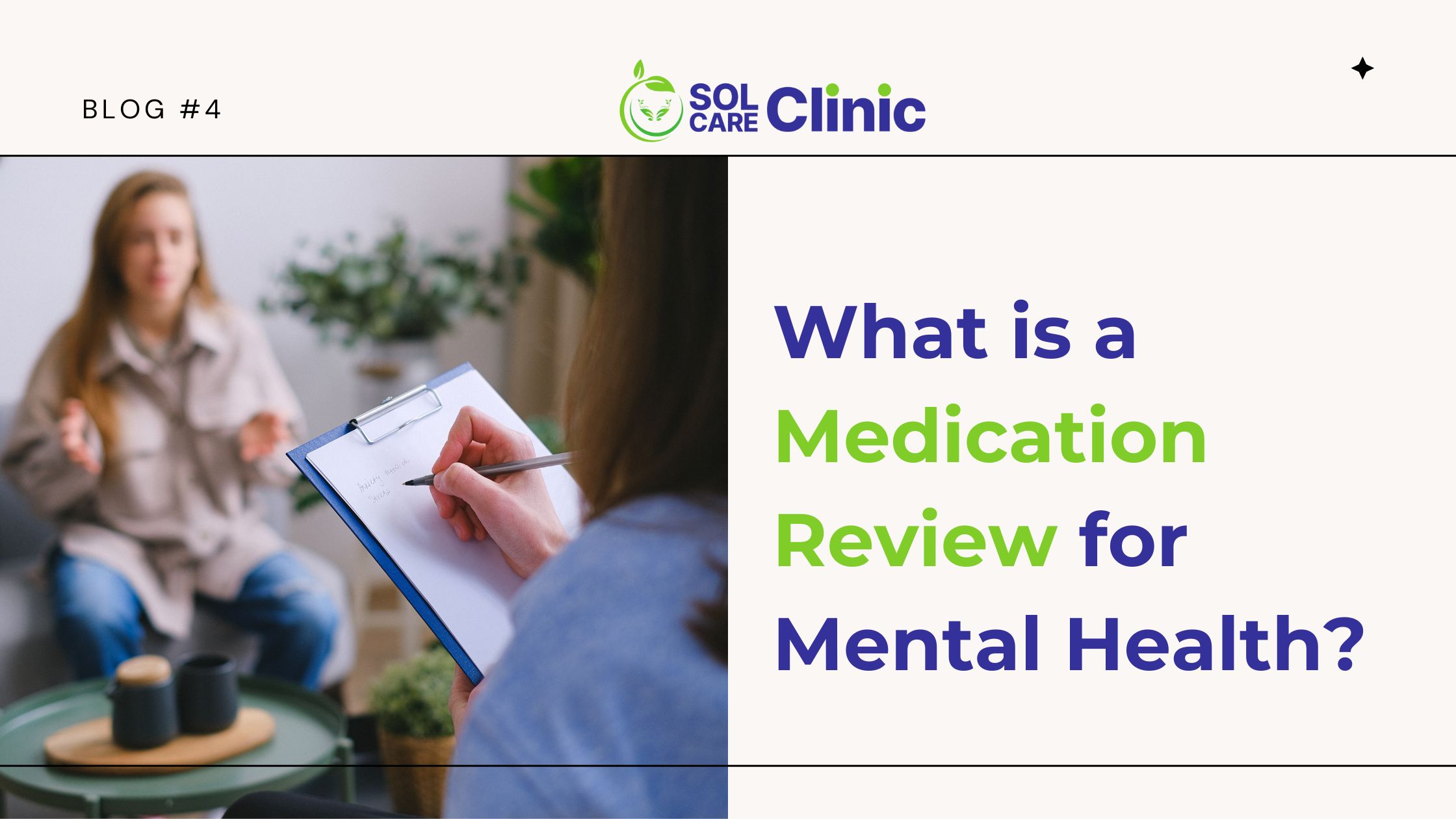As you work on your mental health, finding the best medications can be tough. That’s where a medication review comes in. It’s a big check-up to see if your current meds are still doing their job well. A psychiatrist does this review to see if any changes might help you feel better. It’s super important if other meds have yet to work like they should.
Who conducts the medication review?
The medication review, a thorough and comprehensive process, is typically conducted by your psychiatrist during each consultation. However, if you or your psychiatrist believe it would be beneficial, another psychiatrist may provide a second opinion. This process entails meticulously examining your medical history, engaging in in-depth discussions with you, and assessing any potential interactions between multiple medications you may be taking. This thoroughness ensures that no aspect of your mental health is overlooked.
What typically occurs during a medication review session with a psychiatrist?
During a medication review session with a psychiatrist, you can expect a thorough assessment of all the medications you’re currently prescribed, examining factors like dosage and timing. It’s a safe space to raise questions or express concerns about your medication regimen, ensuring you’re fully informed and comfortable with your treatment plan.
Following the review, the psychiatrist will provide their professional insights, discussing potential adjustments to optimize symptom management or minimize side effects. This process is designed to bring you relief and hope, knowing that your mental health is carefully monitored and managed.
How does the medication review procedure work?
A psychiatric medication review is typically conducted by a general physician, psychiatrist, or pharmacist, usually at the patient’s request. During the review, the following information will be required:
- Complete list of medications being taken
- Complete list of vitamins, food supplements, and herbal supplements being taken
- Dosage of each medication
- Schedule of each medication
Patients should bring samples of all the medications they take during the review. The healthcare provider will assess each medication based on its purpose, dosage, administration, expected outcome, desired effects, side effects, and potential drug interactions.
The healthcare provider will revise the patient’s medication plan if any issues are identified. In some cases, a follow-up visit may be requested.
Possible Risks and Complications
A psychiatric medication review itself does not pose any harmful risks or complications. However, there are potential risks associated with not seeking such a review.
Psychiatric medications require more frequent review compared to other types of medications. This is because, in addition to common or mild side effects, psychiatric medications can also lead to long-term and more serious neurological complications if they are not properly managed.
These complications may include:
- Type 2 diabetes
- Tardive dyskinesia (permanent uncontrollable twitching)
- Impaired cognitive function
- Memory impairment
- Liver problems
- Pancreatitis
- Thyroid problems
- Chronic fatigue
- Pulmonary hypertension
Moreover, the risk of withdrawal symptoms may arise if medication is changed or stopped without undergoing a psychiatric medication review first. These withdrawal symptoms may include:
- Insomnia
- Fatigue
- Anxiety
- Depression
- Agitation
- Psychosis
- Hypersensitivity
To prevent long-term complications and withdrawal symptoms, patients should consider requesting a psychiatric medication review at least once a year or when they believe it is necessary.
Assessing medication effectiveness in psychiatry
Determining whether your medication is effective involves more than just observing immediate effects. While some medications, like sleeping tablets, yield quick results, psychiatric medications often require a longer timeframe to gauge their impact. It’s crucial to assess changes in your symptoms and overall mental well-being over time, considering factors like duration of use and any concurrent medications.
Unlike the swift onset of sleep aids, psychiatric medications may take weeks to manifest noticeable improvements. Consequently, a systematic approach is necessary, periodically evaluating each medication to gauge its necessity, efficacy, and potential need for adjustment or discontinuation.
Moreover, individual factors such as smoking or vaping habits can influence medication response, necessitating tailored dosage adjustments for optimal efficacy. Thus, understanding medication effectiveness entails a comprehensive assessment that accounts for various variables and may require patience and ongoing observation.
Logging medication and symptoms
A medication or symptom log is a valuable tool for tracking your daily medication intake and noting any related symptoms or changes in mood. Whether it’s jotting down details on paper, using a note-taking app, or maintaining a spreadsheet, the goal is to provide a comprehensive record for you and your specialist.
These logs become particularly important during medication adjustments or when starting new treatments. By logging your medication regimen alongside symptoms or mood fluctuations, you and your psychiatrist gain insights into how the medication affects you over time.
Determining medication continuation
Several factors come into play when considering whether to continue a medication. Essential considerations include its effectiveness, any adverse effects experienced, the duration and dosage of usage, and the potential long-term implications. Ultimately, discussing any medication decisions with your healthcare provider is crucial for ensuring the best course of action for your well-being.
Exploring alternative options when previous medications are ineffective
Don’t be disheartened if you haven’t responded well to medication. Finding the right psychopharmaceutic treatment can often involve trying multiple options before discovering what works best for you.
It’s not unusual for people to experience little to no improvement or to find the side effects too challenging to tolerate. This trial-and-error process is normal, and with persistence and support from your healthcare provider, you can see the optimal medication and dosage that suits your needs.
Summarizing
Regular medication reviews help healthcare providers evaluate the efficacy, dosage, and potential interactions, minimizing long-term complications and withdrawal symptoms. Patients are encouraged to prioritize these reviews and maintain proactive communication with healthcare professionals for the best possible care and improved overall well-being.





